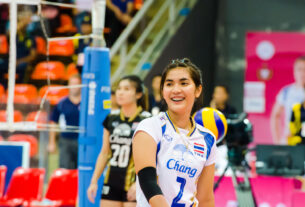Baseball contracts are long to provide stability and security for both players and teams.
Baseball is a sport that’s been around for over a century, and it’s known for its lengthy season and prolific player contracts. Many fans may wonder why baseball contracts are so much longer than those in other sports. Contract lengths can range from a single season to over a decade.
In this post, we will explore the reasons behind this phenomenon and the implications it has for baseball players and teams.
Why Are Baseball Contracts So Long?
Numerous factors contribute to the extended duration of baseball contracts. Financial considerations and player performance both play pivotal roles in this regard. Now, let’s delve deeper into these aspects and explore them with greater precision and clarity!
Financial Considerations
Baseball contracts are often long due to the significant financial considerations involved. These contracts are shaped by various revenue streams, including TV and streaming rights deals, sponsorship and merchandise sales, as well as stadium revenue and ticket sales.
TV and streaming rights deals play a crucial role in generating revenue for baseball teams. Contracts between leagues and broadcasters are often lucrative, providing teams with substantial income. This revenue allows teams to invest in player contracts for extended periods, ensuring the team’s competitiveness and stability.
Sponsorship and merchandise sales also contribute to the financial feasibility of long-term contracts. By securing sponsorship deals with various brands and maximizing merchandise sales, teams can generate additional income to support extended player contracts.
Furthermore, stadiums and ticket sales significantly impact a team’s financial capacity. Successful baseball franchises attract large numbers of fans, resulting in higher ticket sales and increased stadium revenue through concessions and merchandise purchases. This revenue enables teams to afford long-term contracts for their players.

Role of Player Performance
Baseball contracts are often lengthy as player performance significantly influences their value. Statistical analysis is extensively used in player evaluation to assess their skills and potential. Teams rely on long-term projections and potential to determine if a player is worth investing in for an extended period. Star players who consistently perform at a high level are in high demand, and the market drives up their value. Teams and agents negotiate long-term contracts to secure the player’s services and protect their investments.
Competitive Balance In The League
Baseball contracts are usually pretty long since the league wants to make sure things are fair and balanced. This is achieved through various mechanisms such as salary caps and luxury tax. The implementation of salary caps restricts the amount of money a team can spend on player salaries, ensuring that no single team can acquire all the top talent and create an unfair advantage.
Moreover, the luxury tax is imposed on teams that spend above a certain threshold, with the revenue generated being redistributed to teams that are below the threshold. This helps in redistributing player talent and maintaining parity among teams. These measures are put in place to prevent a few wealthy teams from dominating the league and to promote fair competition.
Player Security And Stability
Baseball contracts have become increasingly long in recent years, providing players with security and stability in their careers. One of the main reasons for the lengthier contracts is to mitigate the risks that players face due to potential injuries and declines in performance. By signing longer contracts, players can ensure that they have financial stability even if they suffer an injury that sidelines them for a period of time.
Another factor that contributes to the length of baseball contracts is the longevity of player careers. Unlike other sports, baseball players tend to have longer careers, with some players able to perform at a high level well into their thirties and even forties. By signing longer contracts, players can secure their future earnings and continue to play the sport they love for longer.
Overall, the length of baseball contracts is a result of the desire to provide player security, mitigate risks, and ensure financial stability. These longer contracts benefit both the players and the teams, allowing for a win-win situation in the fast-paced world of professional baseball.

Negotiation Strategies And Tactics
The contracts are often long and complex due to various negotiation strategies and tactics employed by both players and teams. Agents play a crucial role in shaping these contracts, as they advocate for their clients and seek to secure the most favorable terms possible.
Agents work closely with players to craft contracts that align with their financial goals and career aspirations. They negotiate for competitive salaries, performance bonuses, signing bonuses, and other incentives that reward players for their success on the field.
During the arbitration process, agents often have to present a player’s statistics and achievements to argue for a higher salary. They strategically position their clients for free agency, maximizing their chances of signing lucrative long-term deals with teams.
Benefits of Engaging in Long-term Baseball Contracts
Long-term baseball contracts offer numerous benefits for both players and teams. Let’s highlight the significant advantages:
Benefits of Long Contracts for Players:
- Guaranteed financial security.
- Chance to negotiate for higher salaries.
- Ability to explore free agency while under contract.
Benefits of Long Contracts for Teams:
- Locking in talents for a longer period
- Increased roster stability
- Opportunity to build team chemistry
Frequently Asked Questions
What Is The Longest Contract In Baseball History?
The longest contract in baseball history is the 13-year, $330 million deal signed by Giancarlo Stanton with the Miami Marlins in 2014.
Why Are American Sports Contracts So Long?
American sports contracts are often long because they aim to provide security and stability for both players and teams. These contracts ensure that players receive fair compensation and that teams can plan for the long term. They also allow for negotiation and often include clauses for performance incentives and team options.
How Many 10-Year Contracts Are There In MLB?
There are 15 ten-year contracts in MLB.
Can MLB players Opt Out Of Contracts?
Yes, MLB players can opt out of contracts.
Conclusion
The long duration of baseball contracts can be attributed to various factors such as the player’s skill level, market demand, and team strategies. With massive financial investments, teams aim to secure talented players for an extended period, protecting their interests and maintaining a competitive edge.
These lengthy contracts also provide a sense of stability for players, offering a guaranteed income and the opportunity to develop their careers. While some may question the necessity of such long-term commitments, they remain a prominent feature in the baseball industry.



